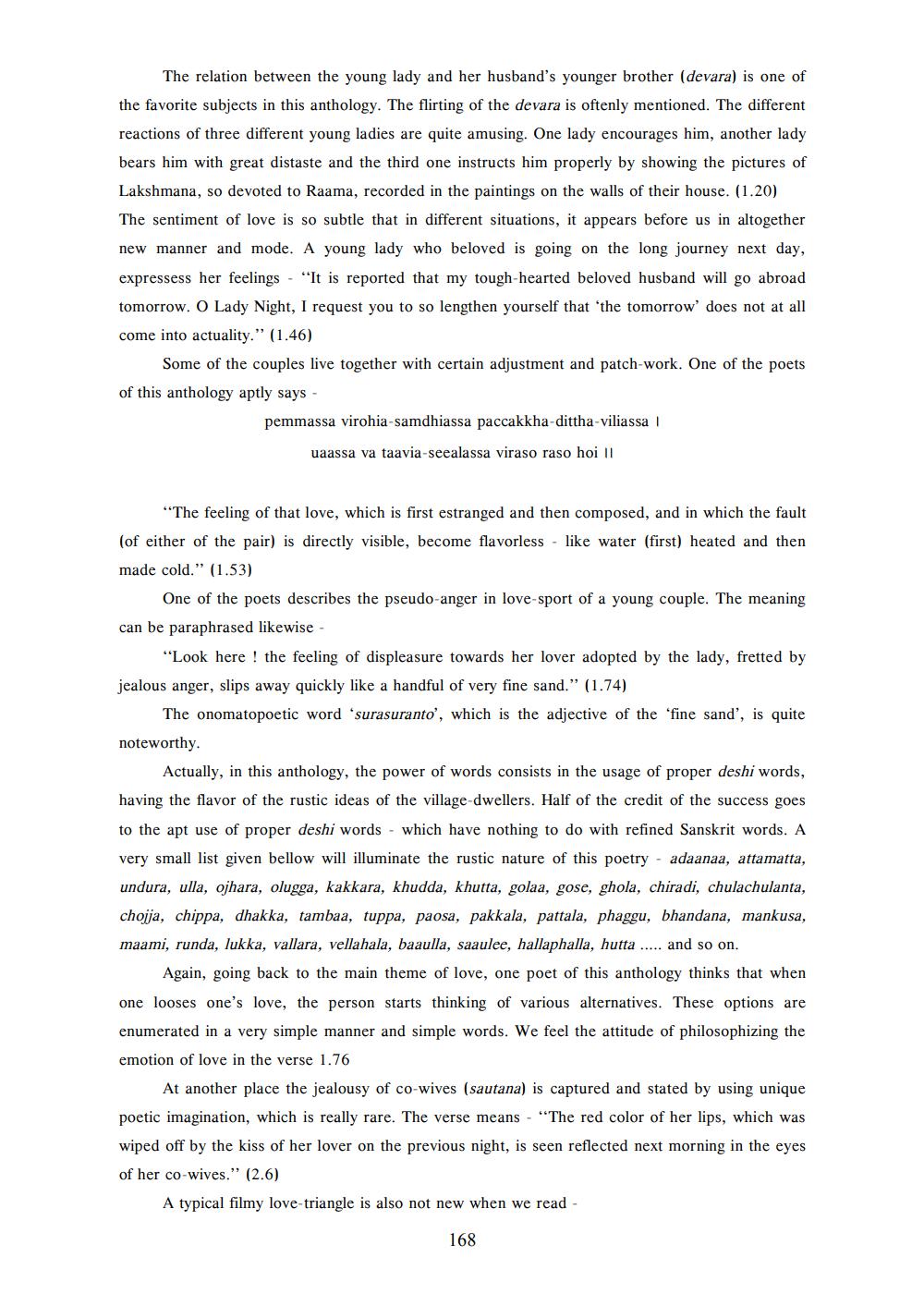________________
The relation between the young lady and her husband's younger brother (devara) is one of the favorite subjects in this anthology. The flirting of the devara is oftenly mentioned. The different reactions of three different young ladies are quite amusing. One lady encourages him, another lady bears him with great distaste and the third one instructs him properly by showing the pictures of Lakshmana, so devoted to Raama, recorded in the paintings on the walls of their house. (1.20) The sentiment of love is so subtle that in different situations, it appears before us in altogether new manner and mode. A young lady who beloved is going on the long journey next day, expressess her feelings - "It is reported that my tough-hearted beloved husband will go abroad tomorrow. O Lady Night, I request you to so lengthen yourself that 'the tomorrow' does not at all come into actuality." (1.46)
Some of the couples live together with certain adjustment and patch-work. One of the poets of this anthology aptly says -
pemmassa virohia-samdhiassa paccakkha-dittha-viliassa
uaassa va taavia-seealassa viraso raso hoi 11
**The feeling of that love, which is first estranged and then composed, and in which the fault (of either of the pair) is directly visible, become flavorless - like water (first) heated and then made cold." (1.53)
One of the poets describes the pseudo-anger in love-sport of a young couple. The meaning can be paraphrased likewise -
"Look here ! the feeling of displeasure towards her lover adopted by the lady, fretted by jealous anger, slips away quickly like a handful of very fine sand." (1.74)
The onomatopoetic word 'surasuranto', which is the adjective of the 'fine sand', is quite
noteworthy.
Actually, in this anthology, the power of words consists in the usage of proper deshi words, having the flavor of the rustic ideas of the village-dwellers. Half of the credit of the success goes to the apt use of proper deshi words - which have nothing to do with refined Sanskrit words. A very small list given bellow will illuminate the rustic nature of this poetry - adaanaa, attamatta, undura, ulla, ojhara, olugga, kakkara, khudda, khutta, golaa, gose, ghola, chiradi, chulachulanta, choija, chippa, dhakka, tambaa, tuppa, paosa, pakkala, pattala, phaggu, bhandana, mankusa, maami, runda, lukka, vallara, vellahala, baaulla, saaulee, hallaphalla, hutta ..... and so on.
Again, going back to the main theme of love, one poet of this anthology thinks that when one looses one's love, the person starts thinking of various alternatives. These options are enumerated in a very simple manner and simple words. We feel the attitude of philosophizing the emotion of love in the verse 1.76
At another place the jealousy of co-wives (sautana) is captured and stated by using unique poetic imagination, which is really rare. The verse means - "The red color of her lips, which was wiped off by the kiss of her lover on the previous night, is seen reflected next morning in the eyes of her co-wives." (2.6)
A typical filmy love-triangle is also not new when we read -
168




